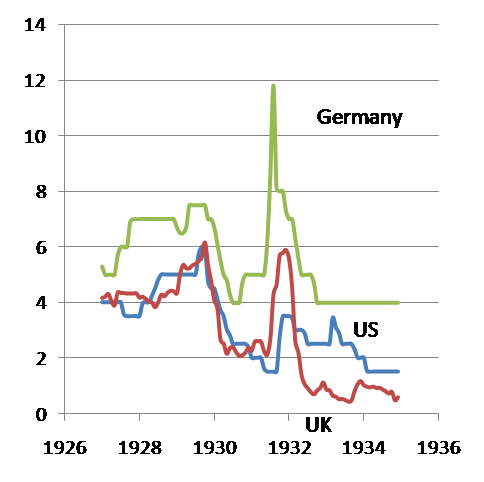Paul Krugman does not think highly of German monetary policy in 1931-2 which included raising the discount rate to 12% during the Depression. One might ask if there were any unfortunate political consequences.

Having greatly enjoyed "The Stabilization of the German Mark" by Hjalmar Horace Greeley Schacht I wondered what Hjalmar was up to those years. Turns out he went West.
"he stepped down from the position of Reichsbank Chairman on 7 March 1930. During 1930, Schacht campaigned against the war reparations requirement in the United States."
Then
"He returned as Reichsbank Chairman on 17 March 1933."
I think it is safe to say that the German economy performed better when Schacht was involved in making policy than when he wasn't.
Now I don't want to say he was a hero who would have saved Germany. In the interval he didn't just travel in the USA, " he helped Wilhelm Kepler to organize a petition of industrial leaders requesting that President Hindenburg nominate Adolf Hitler as Chancellor of Germany."
He was always a bloody minded nationalist (Before WWI author of "Germany Must Have Colonies" which I haven't read). This makes his second and third name very ironic. Not Germanic at all (in fact I just learned that Hjalmar is definitely Danish not German). Horace Greeley employed Karl Marx as a journalist, then fired him in 1848 suspecting him of excessive nationalism.
Not that Schacht didn't pay for the advice he gave Hindenburg. His Wiki opens
"Released from effective service to the Nazi government in 1939, Schacht ended World War II in a concentration camp, and was probably the only concentration camp survivor tried at Nuremberg. He was eventually acquitted at Nuremberg."
(what was the charge ? Excessive multiplicity of exchange rates ? Probably trying to enforce capital controls).
History is a prankster, and I have never understood how people manage to believe that there is a God who is not principally motivated by a really sick and twisted sense of humor.
No comments:
Post a Comment